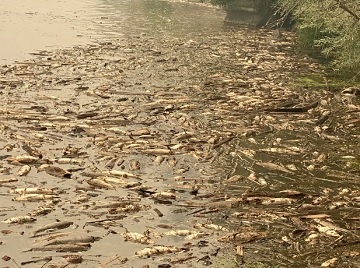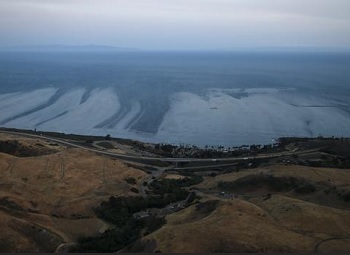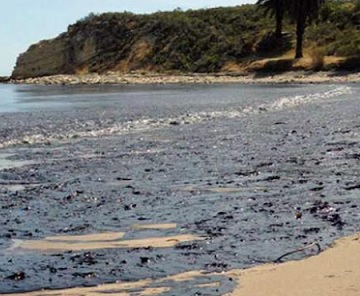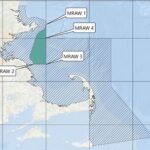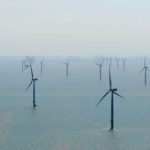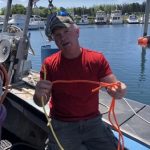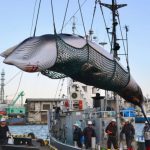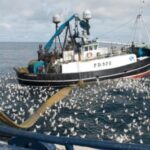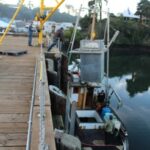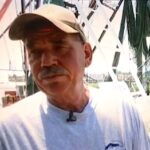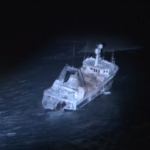Tag Archives: California
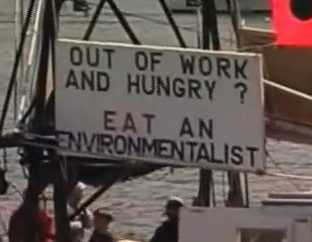
Whale injuries from drift gillnets off California spark lawsuit against U.S.
Environmentalists on Thursday sued the agency overseeing U.S. fisheries, claiming it had failed to protect endangered humpback whales from entanglement in drift gillnets used in commercial fishing off California. The lawsuit accuses the National Marine Fisheries Service of violating the Endangered Species Act by allowing drift gillnets without safeguards and failing to take into account the harm posed to whales already at risk of extinction. >click to read<, – The Center for Biological Diversity sued NOAA Fisheries today to force it to protect endangered Pacific humpback whales from entanglements in California drift gillnets. In the past two fishing seasons an estimated 12 Pacific humpbacks were caught in the California drift gillnet fishery, according to federal reports. >click to read< 10:35
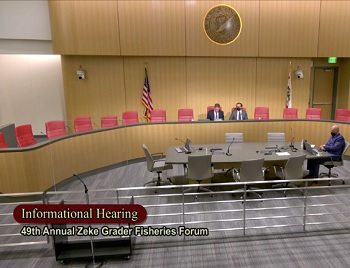
‘A healthy ocean means a healthy fleet’: salmon, crab, kelp, and climate the focus of annual fisheries forum
Dispatches on the state of California’s fisheries this year have brought “a mix of some glimmers of better news, while still struggling with difficult issues,” California Department of Fish and Wildlife (CDFW) Director Chuck Bonham summarized at the 49th Annual Zeke Grader Fisheries Forum on Wednesday afternoon. The forum was moderated by State Senator Mike McGuire as part of the Joint Committee on Fisheries and Aquaculture. In addition to a detailed report from Bonham, the afternoon featured panels on drought and salmon, the dungeness crab season, the state of California’s kelp forests, and aquaculture — as well as a brief public comment period. >click to read< 19:16
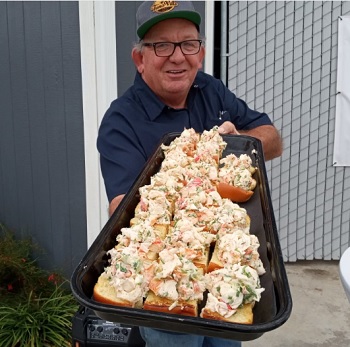
Commercial fishermen form Point Loma Commercial Fishing Alliance
Point Loma commercial fishing businesses and tenants at Driscoll’s Wharf launched a new Point Loma Commercial Fishing Alliance at an Oct. 13 press conference at the wharf, which included wine and lobster rolls. The group formed as an effort to draw attention to the significant role commercial fishing plays as the “front door” to San Diego’s fishing industry. The alliance seeks to advocate and represent commercial fishing activities along the Point Loma working waterfront, known as America’s Cup Harbor and Shelter Island. “As most of you know, we’re trying to save Driscoll’s Wharf,” said Tom Driscoll. “I want to keep this going. But more importantly, for commercial fishermen in this area, this facility is really needed for them. So, the commercial fishing alliance was formed.” >click to read< 08:35

Central Coast Fishing Industry and Castle Wind LLC Announce Formation of New Mutual Benefits Corporation
The Morro Bay Commercial Fishermen’s Organization, the Port San Luis Commercial Fisherman’s Association, and Castle Wind LLC (C, a joint venture between Trident Winds Inc. and TotalEnergies Renewables USA, are pleased to announce the formation of the Morro Bay Lease Areas Mutual Benefits Corporation. The purpose of the Morro Bay MBC is to facilitate communication, coordination, and cooperation between the California Central Coast commercial fishing industry and offshore wind project developers, as well as to provide financial resources in furtherance of California Coastal Act policies. Morro Bay MBC creates a pathway for the industry to demonstrate to the fishermen and fishing communities, to BOEM, and to the California Coastal Commission, the commitment of project developers to responsible offshore wind development that protects and supports a sustainable commercial fishing industry. >click to read< 10:30
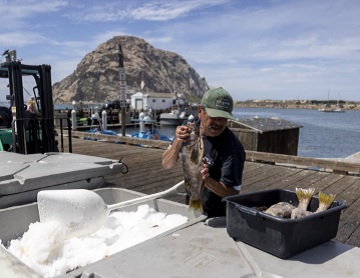
California Offshore Wind Projects Face Hurdles as Pressure Groups, Industry Interests Weigh In
As the Biden administration plans for the country’s first West Coast offshore wind turbines, interests ranging from commercial fishing fleets to powerful environmental groups are complicating the road ahead for the California projects. Some fishermen are worried about losing access to swaths of rich fishing grounds, where they would have to stop towing nets that could get caught on underwater cables. Lori Steele, executive director of the West Coast Seafood Processors Association, said offshore wind power projects threaten an industry that also must deal with depleted fish stocks and soaring coastal real-estate prices. “We’re struggling to make sure that people understand that, just because you can’t see it, that doesn’t mean it’s not having an impact,” she said. There is early discussion about creating fishing compensation funds, similar to ones created by East Coast projects for financial losses, “but the industry doesn’t want to be bought out,” she said. >click to read< 08:08
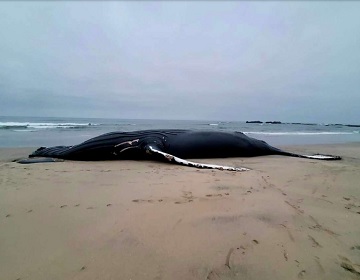
Ship strike probably killed whale off California coast
A humpback whale that washed ashore in the San Francisco Bay Area over the weekend probably was killed by a collision with a ship, researchers said. A necropsy determined that the female adult whale had “injuries consistent with a ship strike,” including extensive bruising to the chest area along with a fractured vertebra, and her skull was dislocated from her spinal column, according to a statement from The Marine Mammal Center. Except for those injuries, the whale was in excellent condition, with ample fat and blubber reserves, the center said. >click to read< 08:46
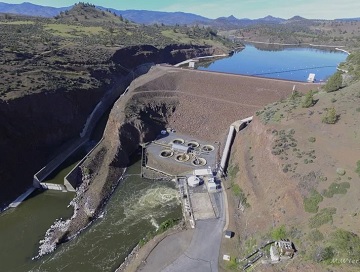
FERC Staff Recommend Removal of Lower Klamath Dams in Final Environmental Document
After nearly two decades of painstaking negotiations and political turbulence, the largest river restoration project in American history is set to begin early next year. This morning, Federal Energy Regulatory Commission (FERC) staff released the long-awaited Final Environmental Impact Statement (FEIS) for license surrender, decommissioning and removal of four dams – Copco No. 1, Copco No. 2, J.C. Boyle and Iron Gate – on the Lower Klamath River, a move that would restore over 400 miles of critical salmon spawning habitat in the Klamath Basin. The 1,242-page document contains FERC staff’s evaluation of the environmental, cultural and economic impacts associated with dam removal. In short, staff agree that dam removal is the best path forward. >click to read< 10:08
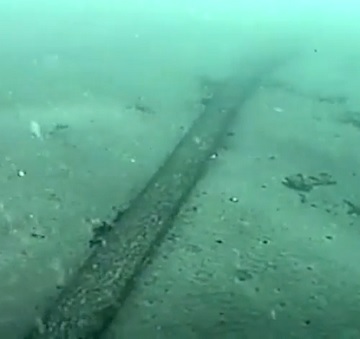
Energy companies reach $13 million deal to resolve criminal charges over OC oil spill
The company that operates an underwater oil pipeline that ruptured last year, spilling 25,000 gallons of crude into the ocean off Huntington Beach — forcing a closure of beaches and fisheries — has agreed to pay nearly $13 million to resolve a federal criminal indictment over the spill, prosecutors announced Friday. As part of the agreement, Amplify Energy Corp. and two of its subsidiaries will plead guilty to violating the federal Clean Water Act, according to the U.S. Attorney’s Office. >click to read< 19:40
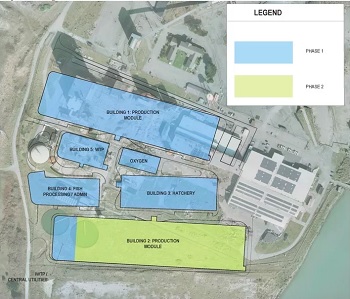
Fishermen, Con Groups Appeal Nordic Aquafarms’ Environmental Report Certification
Two weeks after the Humboldt County Planning Commission certified the Final Environmental Impact Report (FEIR) for Nordic Aquafarms’ planned land-based fish factory on the Samoa Peninsula, the decision is being appealed to the Board of Supervisors. On Thursday, leaders of three local nonprofits, the Redwood Region Audubon Society Chapter, the Humboldt Fishermen’s Marketing Association and 350 Humboldt, submitted a letter to the supervisors and to John Ford, the county’s director of planning and building, initiating the appeal. The letter alleges that the environmental report, which was prepared for the county by local engineering firm GHD, violates the California Environmental Quality Act (CEQA) by understating several of the project’s impacts, including its greenhouse gas emissions, its energy use and the threats it poses to commercial fisheries and coastal and bay ecosystems. >click to read< 11:44
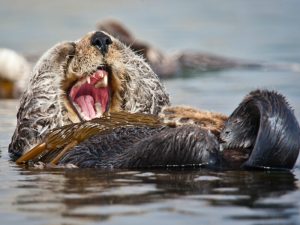
U.S. Fish and Wildlife Service Strategy to Reintroduce Sea Otters is Flawed
The USFWS study fails to estimate costs to taxpayers; impacts to key local fisheries such as Dungeness crab and sea urchin; neglects to fully examine the impacts to local port and harbor activities and fishing communities and fails to directly clarify to impacted Tribal Nations that no ceremonial and subsistence uses – or control of otter populations negatively impacting other important Tribal resources – are permitted under current Federal law. For Oregon and California coastal communities dependent on Dungeness crab, sea urchin, and other shellfish, reintroducing sea otters in an area where they have been absent for more than 100 years will spell big trouble. Yet, a recent report from the U.S. Fish and Wildlife Service (USFWS) concludes it is “feasible” to reintroduce them to Southern Oregon and Northern California. >click to read, with links< 08:19
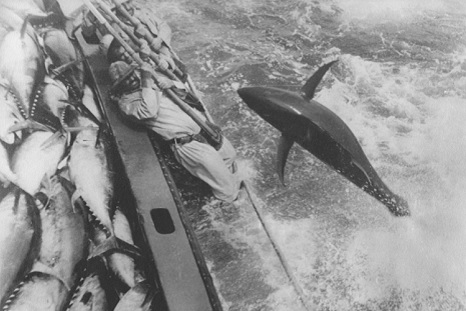
TUNAVILLE – Point Loma’s proud Portuguese past, and present
The Point Loma boundaries of Lowell to Talbot streets, and as high up the peninsula as Willow Street, by the 1930s, had earned the moniker “Tunaville.” Here has been home to an immigrant Portuguese populace settled as far back as 1885, and by the 1940s had become a bustling tuna fishermen’s haven. Early Portuguese fishing settlements grew along the base of Kellogg and McCall streets in La Playa and Roseville. Interestingly, the natural tidelands at the time meandered as far inland as today’s Scott Street. “In remarkably short order, each fisherman owned his own dory. photos, >click to read< 14:58
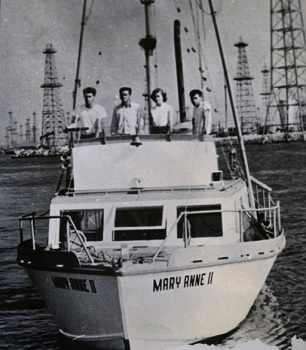
Long Beach man replicates family history with winning model boat
Over the past eight years, Bob Daley painstakingly built a fishing boat replica from scratch. Although it was on a much smaller scale this go around, it wasn’t the first time Bob constructed the vessel, affectionately dubbed the Mary Anne II. During the 1950s, Bob and his two brothers worked as fishermen to put themselves through college. Unable to afford a boat large enough to sustain their business, they built their own and named it the Mary Anne II after their youngest sister. From April 1950 to May 1951, the Daley family’s driveway in Long Beach served as a makeshift shipyard. Bob 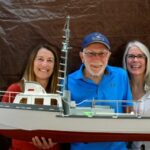 and his brothers worked on the Mary Anne II nearly every day as their mother watched from the kitchen window, wringing her hands. “She was kind of a worrier, always wondering what was going to go wrong,” Bob said. But she always brought the boys sandwiches for lunch. And Mary Anne, the boat’s namesake, tagged along with lemonade and fresh cookies. Photos, >click to read< 09:42
and his brothers worked on the Mary Anne II nearly every day as their mother watched from the kitchen window, wringing her hands. “She was kind of a worrier, always wondering what was going to go wrong,” Bob said. But she always brought the boys sandwiches for lunch. And Mary Anne, the boat’s namesake, tagged along with lemonade and fresh cookies. Photos, >click to read< 09:42
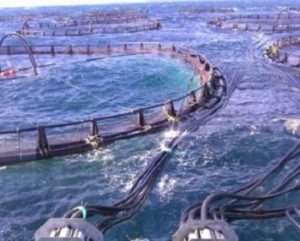
Don’t Cage Our Oceans: Fish farming may threaten rare Gulf whale
The site approved for the Velella Epsilon fish farm in federal waters west of Venice is one of just three potential aquaculture opportunity areas under consideration off Florida’s Gulf coast. There are six others — three in the central Gulf south of Louisiana and Mississippi and three east of Texas — as well as 10 in the Pacific Ocean off the California coast. It’s part of a collusive effort between fish farming companies and the federal government to divide up national waters for profit, James Mitchell, legislative director of Don’t Cage Our Oceans, said. >click to read< 13:49
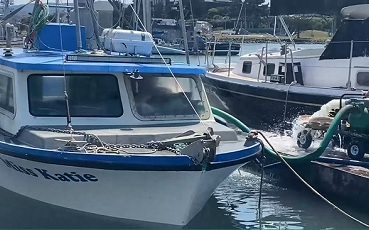
F/V Miss Katie Briefly Threatened to Sink to the Bottom of the Woodley Island Marina
While Woodley Island harbor staff were out doing their regular “dock walk” this morning, a daily check-up to make sure everything is as it should be, according to Harbor District CEO Larry Oetker, their practiced eyes noticed something up on F Dock. Or something down, rather. The Miss Katie, a commercial fishing vessel, was sinking. An oil sheen could be seen on the water, so the staff rushed to retrieve and place portable booms to contain and soak up the pollutant. Then they got on the horn and started calling people,,, >click to continue reading< 18:42
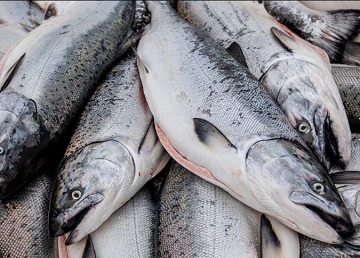
Bodega Bay salmon fishing ‘very productive’ so far this season
On a late morning in early July, Dick Ogg stared off into a sea of gray. The 69-year-old Sonoma County local had just departed from Bodega Bay for five days of commercial salmon fishing off the coast. Heavy fog, rough waves and strong winds made this a bad time for a phone call with a reporter. He was able to talk for a few minutes though. Ogg, vice president of the Bodega Bay Fisherman’s Marketing Association, has lived in Sonoma County for 62 years and has fished for crab and salmon along the coast for more than 40 of those years. “The ocean conditions right now are probably the best we’ve seen in the last 10 years,” he said. Ogg unloaded his five-day catch in Bodega Bay on a Wednesday, about 3,500 pounds or so, “right in the middle” of the pack, he said. At $6.50 per pound, the haul comes out to more than $20,000. So far this season, “everybody’s done very well … this has been a very productive year.” Video, photos, >click to read< 12:15
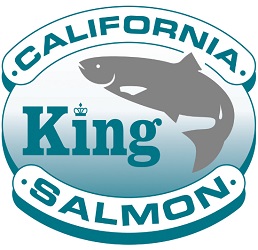
Commercial California King Salmon Season Officially Back in Action
After a recent season break, the 2022 commercial California King salmon season is officially back on, and California’s commercial fishermen are reporting great catches. “Now that the season is open again and the fishing area has expanded, consumers will again see fresh, local California King salmon in their favorite markets,” said David Goldenberg, Chief Executive Officer of the California Salmon Council. The season is currently open now and following a short break mid-month, will resume again at the end of July. Only available May through October, fresh, wild-caught, California King salmon can be found locally at select grocery stores, fish markets, fine restaurants, farmers markets and even direct from fisherman, right off the dock. >click to read< 12:32

32 years later, investigators continue searching for answers in murder of Joseph Fernandes
It has now been 32 years since San Diego resident Joseph Fernandes was brutally murdered aboard a tuna boat docked at the G Street Pier and the case remains cold.“He’s never far from my thoughts,” said Mary Montgomery, Fernandes’ granddaughter. “I do have a sense of peace when I’m near the water.” Fernandes was 69 years old, the retired fisherman was working as a night watchman aboard the Sea Quest Tuna Boat, which was docked at the G Street Pier. As night fell between July 7th and 8th 1990, Fernandes would take his last breath on that boat. >click to read< 16:30
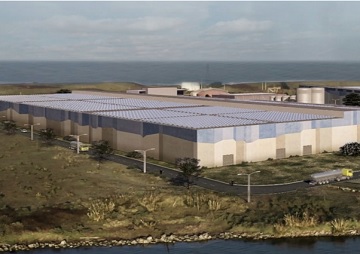
Nordic Aquafarms Final Environmental Impact Report Available for Public Review
The County of Humboldt has prepared a Final Environmental Impact Report for the Nordic Aquafarms California, LLC – Coastal Development Permit and Special Permit application (Case Number PLN-2020-16698), and the report is now available on the county’s website. The Planning Commission will be considering the Coastal Development Permit and Special Permit at a Public Hearing on July 28 beginning at 6 pm in the Board of Supervisors Chambers. >click to read< 12:00
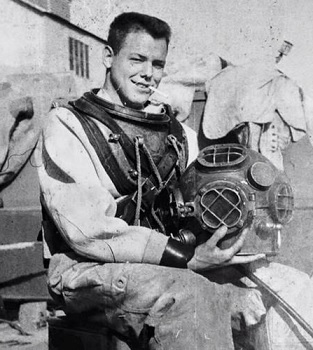
Commercial Fisherman/Businessman Jared “Jerry” Trussler of New Zealand
Jared “Jerry” Trussler was born on August 21st, 1938 to Fern and Arthur Trussler in Paso Robles, California and passed away peacefully at his home in Kerikeri, New Zealand on June 24th, 2022. He grew up in San Luis Obispo and Santa Clara Counties and graduated from San Luis Obispo High School with the class of 1956. In 1957, Jerry went to Alaska to work on a commercial fishing boat in the Bering Sea, which he described as the most pivotal point in his career, and he continued to return to Alaska as a commercial fisherman for over 30 years. Jerry also became a commercial abalone diver and obtained his pilot instructor’s license. In 1965, Jerry started a welding company focused on building steel commercial fishing vessels, but later moved on to manufacturing steel water tanks up to 10 million gallons in size for municipalities all over California. >click to read< 21:45
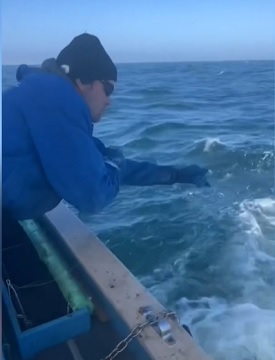
Sustainable fishing off the coast of SoCal
For Ben Hyman, fishing along the California coast is a way of life. He’s been a commercial fisherman for 25 years. “I’ve always been addicted to fishing and loved fishing and grew up surfing, and for a lot of us, it’s just a natural evolution to start wanting to be on the boat and start fishing more,” Hyman said. He opened his own business, the Wild Local Seafood Co., 25 years ago and focuses on selling locally caught seafood such as salmon, halibut, ahi, crab and much more. Video, >click to watch/read< 16:57
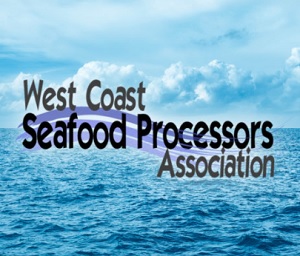
Seafood Industry Professions Raise Concerns About Reintroduction Of Sea Otters
West Coast Seafood processors says that their membership is concerned about a study on the impacts of sea otters on coastal fishing. The West Coast Seafood Processors Association says that they join other ocean stakeholders in a lack of confidence about concerns raised about the otters. “We remain very concerned that the issues we identified in our letter last year will not be adequately addressed in the Fish and Wildlife Service’s cost and feasibility study,” West Coast Seafood Processors Association Executive Director Lori Steele said. >click to read< 18:24
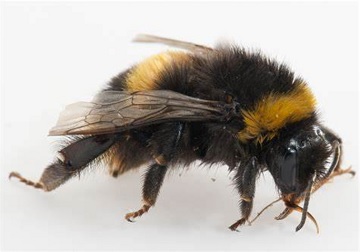
To bee or not to bee – Bees are legally fish in California
A ruling by a California appeals court in the United States has extended the legal protection of endangered species to bumblebees and, in effect, classified them as fish. The court’s decision will allow California to legally protect these endangered, native garden-keepers and help maintain the state’s biodiversity, which is crucial to keeping ecosystems resilient. The court found that “fish” may be commonly understood to refer to aquatic species, but the interpretation of the term in the legislature is “not so limited”. >click to read< 12:07

Commercial Fisherman survives after sleepwalking on boat, falling overboard
Rescuers said “a miracle of God” saved a fisherman who fell overboard into Southern California waters when he woke up in the middle of the night and began sleepwalking off the boat. Dylan Fogg expected a typical Thursday out at sea. He spoke exclusively with Eyewitness News on Friday and said he went to sleep aboard the F/V Crystal Bay, a commercial fishing boat, but woke up in the waters off Ventura. More than six hours later, his crew realized Fogg was missing and put out a mayday call to the U.S. Coast Guard. “A miracle of God found Dylan,” said Crystal Bay Capt. Pence MacKimmie. “He was 12 miles offshore and 40 miles behind the boat. We never knew he went over.” Video, >click to read< 21:28
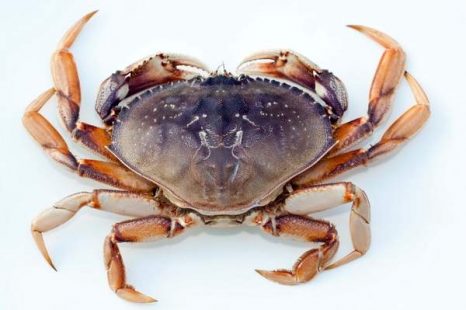
San Francisco D.A. wants a fisherman to pay nearly $1 million over illegal Dungeness crabbing in MPA
A commercial fisherman from Vallejo is accused of illegally catching more than 250 Dungeness crabs at the protected North Farallon Islands State Marine Reserve, San Francisco District Attorney Chesa Boudin announced Friday. On Feb. 11, an unidentified fisherman alerted the California Department of Fish and Wildlife of commercial Dungeness crab traps in the North Farallon Islands State Marine Reserve area, according to a complaint filed by the San Francisco District Attorney’s Office. Officers from the CDFW then found what appeared to be a line, also called a “string,” of 92 commercial Dungeness crab trap buoys in the southern part of the reserve,,, >click to read< 17:21
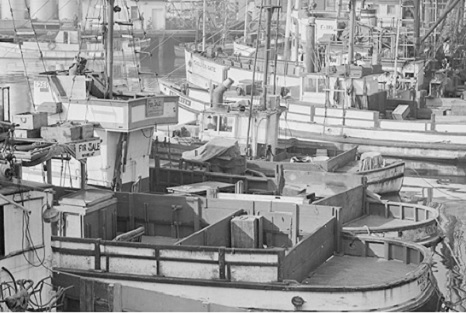
The Lost Japanese Fishing Community from San Pedro
Beginning in the early 1940s, 3,000 first and second-generation Japanese made their homes in an area of Terminal Island known as East San Pedro. The Japanese Fishing Village was next to Fish Harbor, and many of the locals worked in the fishing industry. When a dozen Japanese fishermen settled on Terminal Island at the turn of the twentieth century, it was still a rural stretch of land with around 200 homes. Originally known as Rattlesnake Island due to the snakes that would gather after torrential storms, it had recently been renamed after its new owner, the Los Angeles Terminal Railway. Approximately 250 fishing boats were owned and operated by the residents. Most of the local people, not working on the boats, worked in the many fish canneries clustered together on Terminal Island. >click to read < 17:26
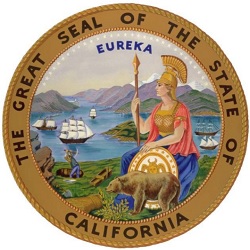
How California bureaucrats are using a typo to destroy a fisherman’s dream
Bureaucrats sometimes make mistakes. But when they refuse to acknowledge a mistake and double down on it to deprive someone of their livelihood and family business, a lawsuit can be the only way to hold them accountable. That’s what happened to Max Williams, and he’s fighting back. Max has dreamed of captaining his own fishing vessel since he was young. Fishing has been the Williams family’s way of life for decades. They have owned and operated vessels practicing sustainable fishing off the coast of California to feed their community and provide for their family. Like his grandfather and parents before him, Max wants to continue the family tradition and captain his own boat. California law requires Max to obtain a “gillnet” permit from the government before he can legally fish as a vessel operator. > click to read < 17:46
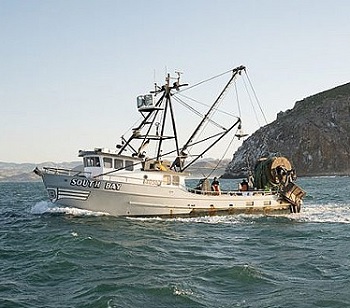
Commercial fishermen talk offshore wind concerns
Offshore wind energy is one step closer to becoming a reality on the Central Coast, and with it, hundreds of potential jobs and renewable energy generation that will be much needed when the Diablo Canyon Power Plant closes. But the local commercial fishing industry continues to raise concerns over how such an undertaking will impact their livelihoods. BOEM released its draft environmental assessment for leasing the Morro Bay Wind Energy Area earlier this month and heard public comment on the report at an April 14 meeting. Further environmental assessment will be required before a wind farm project is actually approved and built—this draft just looks at the impacts of the leasing process. >click to read< 10:08






